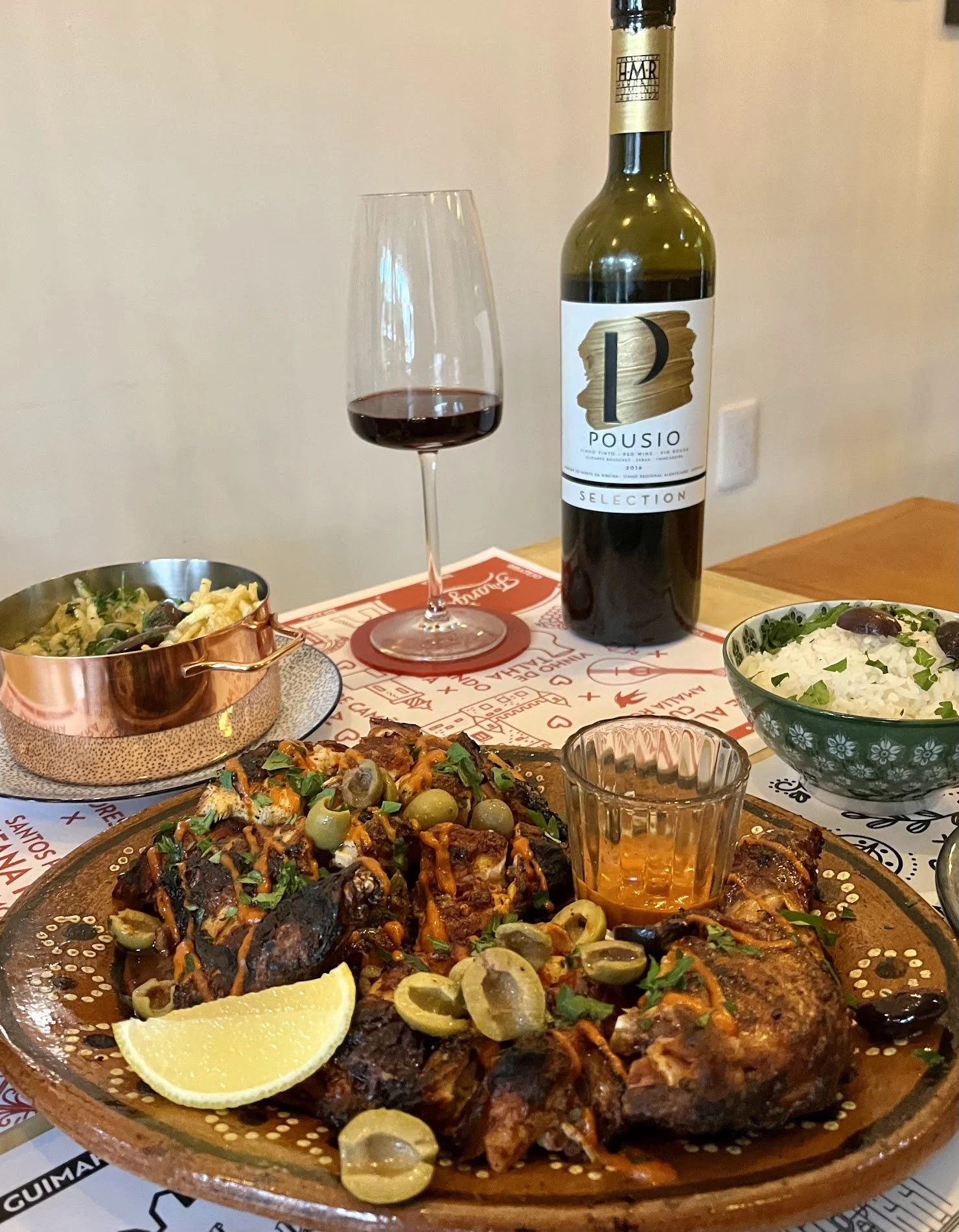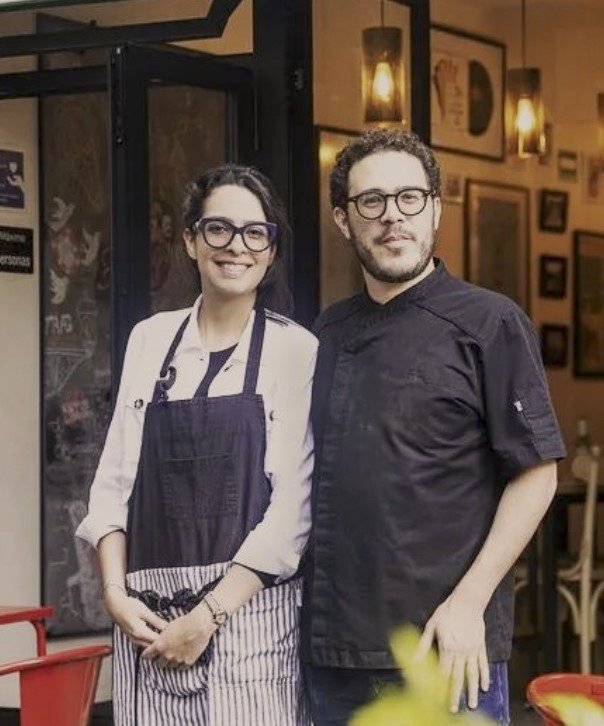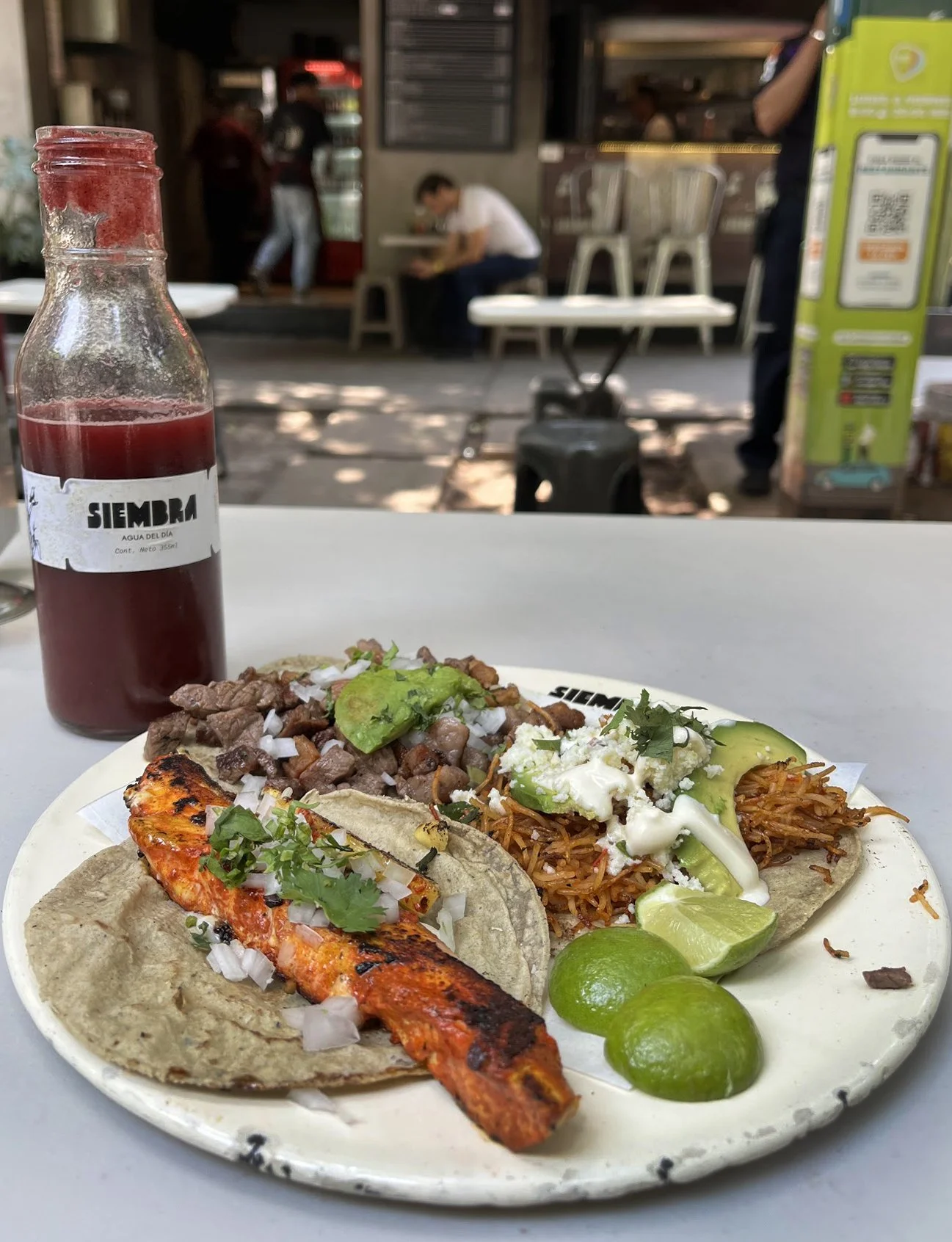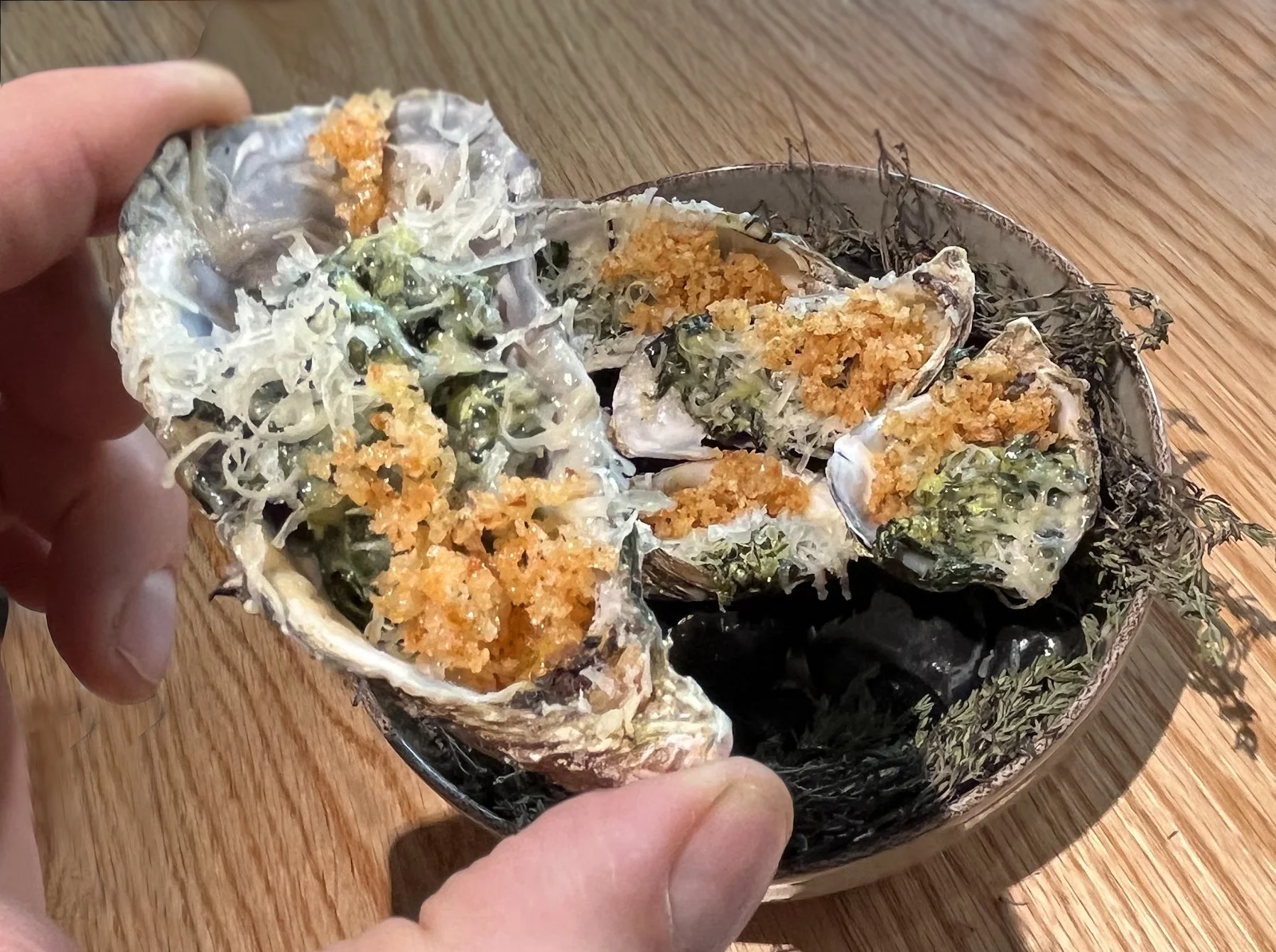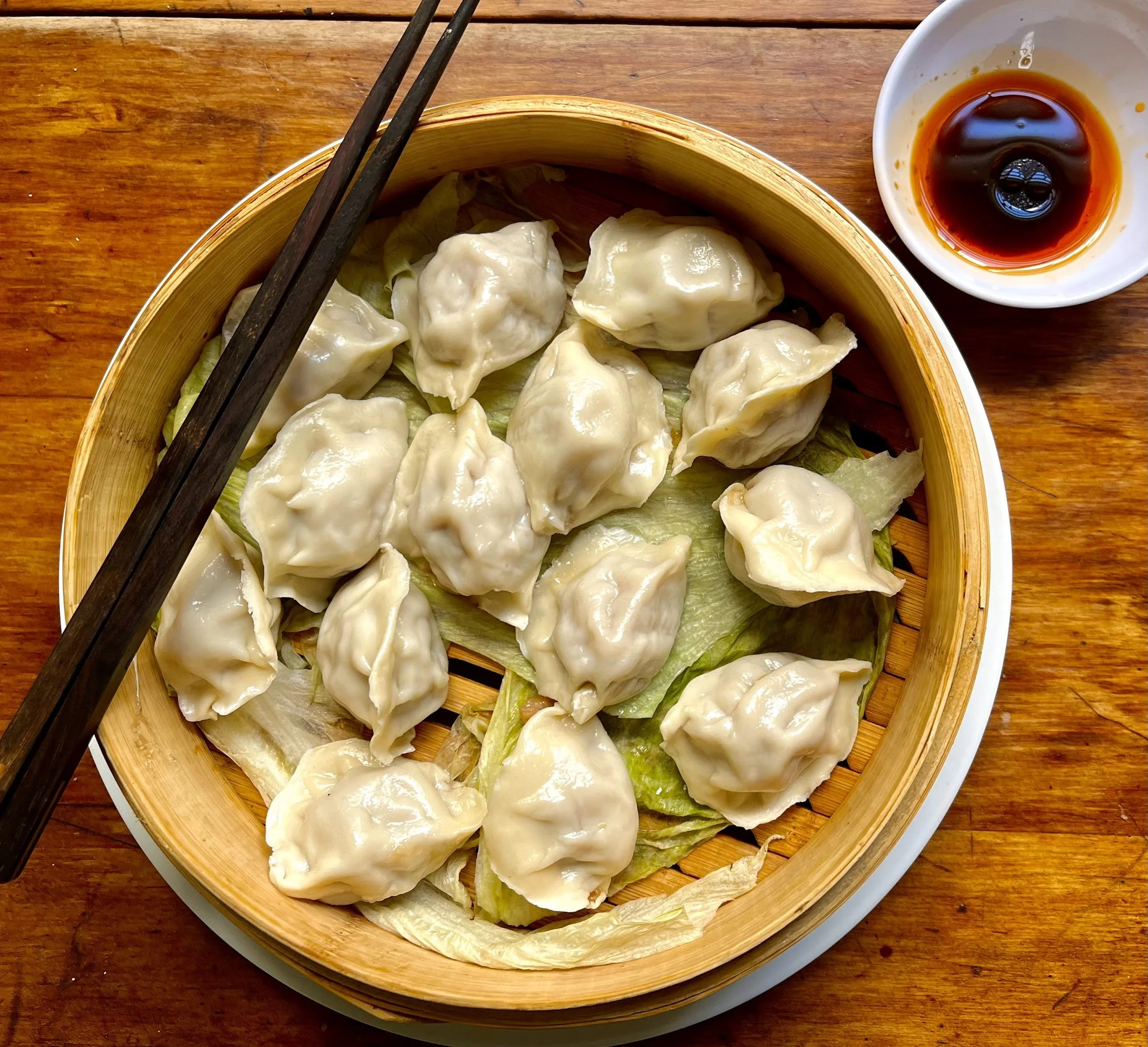Frango! Tasca & Asador Lusitano: Down home Portuguese cooking in Polanco
Oporto, Portugal, 1984. We stroll along the forlorn, misty port past desolate docks, our shadows thrown long by dim streetlights. From afar I hear faint strains of a voice singing an achingly sad fado. Around the bend, an arched window reflects a warm glow; there's laughter and merriment within. “That’s it!” my partner exclaims, relieved. We'd been searching for a tasca, a simple eatery described by our hotelkeeper. Inside, a local family, perhaps fishermen by trade, was dining on an enormous plate of bacalhau (the Portuguese spelling for salt cod) accompanied by greens, carrots, onions, lots of olive oil, a huge crusty country bread and pitchers of fresh vinho verde. This tableau – and the wonderful meal that followed - stayed with me and became an iconic memory of what was then a simple and poor country. It would be many years before I returned, this time to a different Portugal, one discovered by tourists and considerably more affluent and globalized.
Portuguese cuisine is not well known outside the mother country. The cooking of Portugal is unpretentious and relatively uncomplicated—as is generally the case with Iberian culinary traditions. It’s about skilled combinations of a few high-quality ingredients. Lots of fish and seafood, including the aforementioned bacalhau, chicken, pork, fresh greens, aromatic olive oil - all of these are adroitly utilized. The breads and wines can be great.
The chefs: photo courtesy of Time Out Mexico
There have been a few attempts to introduce the Chilango public to this heartwarming cuisine but never so well as at Frango! Tasca y Asador Lusitano. It’s a homey neighborhood restaurant tucked into a tranquil side street in Polanco. Owner Roberto Henríquez and wife Vanessa, Venezuelans by birth, are amateur cooks, in the true sense, in that they are not professionally trained chefs. But they love food, to cook it, to eat it. Roberto explains that “Growing up in Caracas there was a sizeable Portuguese community – we ate this food in other people’s homes; we traveled extensively in Portugal and fell in love with the wines as well as Portuguese cooking, both traditional and contemporary.”
The specialty of the house, frango piri piri, (“frango” means chicken in Portuguese) is a popular preparation in the Algarve region, in southern Portugal. It has roots in the former colonies of Angola and Mozambique where Portuguese settlers arrived with chiles (known as piri-piri in Swahili) and applied European cooking techniques to local dishes. A chicken (free-range here) is marinated for 24 hours in a paste—a mixture of chiles árbol, guajillo and habanero naranja—then roasted and served with the same, mildly picante “piri piri” sauce. Roberto points out that beaches along the southern coast “are lined with rosticerías…everyone has his favorite.” The appealing ruby red bird, garnished with tart green olives and fresh sauce is served cut to bite-sized pieces which make for easy sharing. The meat is succulent and infused with chili, yet light on the heat.
And then there’s bacalhau. Perhaps the most undervalued and misunderstood of seafoods, salt cod is the Portuguese national dish. Captured in the cold waters of Scandinavia and preserved with salt, cod has been feeding the Iberian Peninsula, (and to a lesser degree the rest of southern Europe) for centuries. But it's Portugal that has taken it on full steam and developed innumerable variations of its preparation. A typical supermarket in Lisbon will have a counter seemingly as long as a football field selling nothing but bacalhau, in dozens of cuts and qualities.
Bacalhau à Brás @ Frango
Salted bacalhau is in no way inferior to fresh cod--it's just different. Prepared correctly, it’s succulent and tender, just a bit salty (most of the salt is extracted by soaking the fish in water before cooking) and richly concentrated in fish flavor, lending itself to myriad preparations.
At Frango, at least one bacalhau dish is always on the menu. The traditional bacalhau à Brás, sort of a savory pudding, is served in a copper casserole, shredded fish tossed with crisped potato matchsticks and brought together with egg. Another option might be com natas, a similar but creamier version. Or filetes com arroz de tomate malandrinho, a tomatoey risotto with shards of fish. All are prepared with the finesse an experienced grandmother would impart. That is to say, these dishes are decidedly rustic, homey fare.
Of Frango’s appetizers, my favorites are the small chicken empanadas called chamuças Moçambicanas which are, as the menu explains, related to the samosas of Goa on India’s west coast, transported to Africa and now a staple of Lisbon’s tascas. Their long journey leaves them mildly spicy and fragrant and I could eat a plateful.
A salad that accompanies the chicken or can be ordered alone, is a generously portioned version of Tuscan panzanella, i.e., a lettuce, tomato and olive salad with bread. And that bread, a crusty sourdough made in-house is superb, as are the accompanying oregano-infused olives.
The featured dessert is house-made pastéis de nata, the buttery egg tarts which echo those of the beloved Lisbon café bakery, Pastéis de Belém a pilgrimage site for pastry lovers.
Pasteis de nata @ Frango!
The wine list at Frango is astutely chosen and features about a dozen regional Portuguese wines, some new to our shores. Prices are reasonable, ranging from $800 to $1100 for a bottle.
Ambience is laid back; the interior is simple and cozy there’s outdoor seating and Fado (Portugal’s bittersweet folk music related to Flamenco but with a heartbeat) is the soundtrack.
As previously mentioned, portions at Frango are generous, many dishes are shareable. Lunch without wine will cost around $500 or 600 per person.
I’m always happy to find a great, unpretentious dining option in fancy-shmancy Polanco. Frango’s food is filled with saudade and that’s a great achievement.
Frango! Tasca & Asador Lusitano
Lope de Vega 341 (see map)
Telephone: 55 9240-6448
Open Tuesday 1:30 – 7 p.m., Wednesday – Saturday 1:30 – 8, Sunday 1:30 – 6; closed Monday

